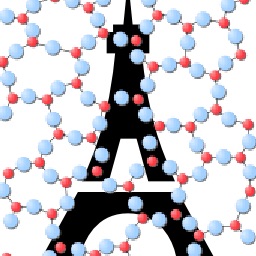Glass relaxation and hysteresis of the glass transition by molecular dynamics simulations
As out-of-equilibrium materials, glasses continually tend to relax toward the metastable supercooled liquid state. Glass relaxation can result in a nonreversible glass transition upon a cooling/reheating cycle. Here, based on molecular dynamics simulations, we present a methodology combining thermal cycles and inherent configuration analysis to investigate the features of relaxation and glass transition reversibility. By considering three archetypical silicate glasses, viz., silica, sodium silicate, and calcium aluminosilicate, we show that, for all the glasses considered herein, the enthalpy relaxation can be well described by mode-coupling theory. Further, we demonstrate the existence of a decoupling between enthalpy and volume relaxation. Finally, we show that enthalpy relaxation results in a nonreversible glass transition—the degree of nonreversibility being strongly system-specific.
